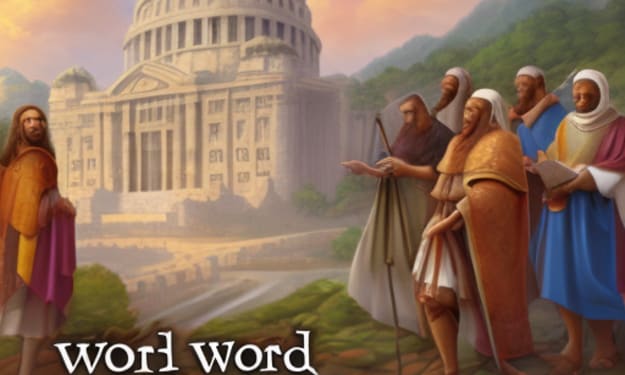What are the lost books of the Bible
What you need to know about rejected books of the Bible
Have you ever wondered what was left out of the Bible? Many books have been excluded from the Bible over the centuries, and this calls into question our understanding of Scripture. In this blog post, we will explore some of the lost books of the Bible – those which were rejected by early Christian communities, or simply forgotten over time. We will look at why these books were excluded and how they could have changed our view on religion had they been included in the Bible. Finally, we will take a look at the impact these lost books can still have today.
What are the lost books of the Bible?
The Bible is a collection of religious texts or scriptures sacred to Christians. There are different versions of the Bible, with some versions containing more books than others. The lost books of the Bible are those books that were not included in the Bible, either because they were not considered sacred by the early Church Fathers or because they were lost over time.
Advertisements
There are many theories as to why these books were not included in the Bible. Some believe that they were not considered worthy of inclusion, while others believe that they may have been lost or destroyed before they could be added to the Biblical canon. Whatever the reason, these books are no longer available for us to read today.
Advertisements
However, some of these lost books have been rediscovered in recent years. One example is the Gospel of Judas, which was discovered in Egypt in 2006. This Gospel tells the story of Judas Iscariot, the disciple who betrayed Jesus Christ, from Judas’s perspective. Another example is the Secret Gospel of Mark, which was found in Egypt in 1958. This Gospel contains an extended version of the Passion narrative found in the New Testament Book of Mark.
Although we may never know all of the lost books of the Bible, we can still learn from those that have been rediscovered. These ancient texts provide us with new insights into early Christianity and offer a different perspective on familiar stories from the Bible.
Why were they lost?
The Bible is a collection of ancient sacred texts or scriptures. Christians consider the Bible to be the word of God, inspired by the Holy Spirit. The Hebrew Bible, which is also called the Tanakh, includes twenty-four books that were written between approximately 1200 BCE and 100 CE. The Christian New Testament contains 27 books, written between approximately 50 and 120 CE.
Some books that were included in early versions of the Bible are not included in modern versions. These books are called the lost books of the Bible. There are many different theories about why these particular books were lost.
One theory is that they were lost because they were not considered to be inspired by the Holy Spirit. Another theory is that they were lost because they contained controversial or heretical content. And still another theory is that they were simply misplaced or forgotten over time.
Whatever the reason, it is clear that the lost books of the Bible are an important part of our religious history and heritage.
What happened to them?
The Bible is a collection of ancient texts that were written over the course of centuries. While most of these texts have been preserved and handed down to us through the ages, there are some that have been lost to time.
The lost books of the Bible are those texts that were not included in the canon of Scripture for one reason or another. Some of these books were never considered to be part of the inspired Word of God, while others were later rejected by the early Church fathers. Still others have simply been lost or forgotten over the years.
Despite their lack of canonical status, many of the lost books of the Bible contain important religious teachings and historical information. For example, The Book of Enoch is an ancient Jewish text that offers insight into the angelic realm and gives a detailed account of the fallen angels who rebelled against God. The Gospel of Thomas is another lost book that contains sayings attributed to Jesus Christ himself.
While we may never know all there is to know about these lost books, they nonetheless offer valuable insights into our religious heritage.
List of the rejected books of the Bible
1. The Epistle of Barnabas
2. The Shepherd of Hermas
3. The Apocalypse of Peter
4. The First and Second Epistle of Clement
5. The Epistle of Paul the Apostle to the Laodiceans
6. The Acts of Paul and Thecla
7. The Book of Enoch
8. 3 Corinthians
9. 1 Clement
10. Gospel of Thomas
11. The Didache (The Teaching of the Twelve Apostles)
12.The Book of Jubilees
13.. 3 Maccabees
The Bible does not contain any “missing books,” “lost books,” or books that have been removed. The Bible contains all of the books that God intended to include there. Despite numerous urban legends and rumors to the contrary, the Bible’s missing books never existed. Instead, they were rejected byearly Church Fathers . The Bible’s books were written at the same time as literally hundreds of other religious texts. Some of these novels include accurate recounts of events that really did happen (1 Maccabees, for example). Others have some beneficial spiritual guidance (the Wisdom of Solomon, for example). However, God did not inspire these novels.
Conclusion
The lost books of the Bible are a fascinating topic that sheds light on religious history and can open our eyes to alternative interpretations of scripture. While these books have not been accepted as part of the official canon, they still remain an important part of history and provide interesting perspectives on events surrounding early Christianity. Whether you choose to accept these books as legitimate or not, it is essential to learn about them in order to gain a greater understanding of bible verses and their cultural context.







Comments
There are no comments for this story
Be the first to respond and start the conversation.